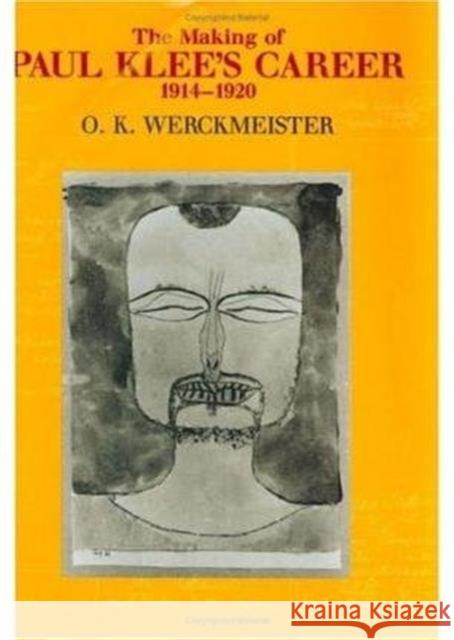The Making of Paul Klee's Career, 1914-1920 » książka
The Making of Paul Klee's Career, 1914-1920
ISBN-13: 9780226893587 / Angielski / Twarda / 1989 / 368 str.
Paul Klee one of the preeminent artists of the twentieth century was associated with all of the major movements of the first half of the century: expressionism, cubism, surrealism, and abstraction. In this economic and political history, O. K. Werckmeister traces Klee's career as a professional artist, concentrating on the years 1914-20 in which Klee rose from obscurity to recognition in the visual culture of the incipient Weimar Republic. Werckmeister reveals the degree to which Klee, who has been traditionally portrayed as aloof from politics and the vicissitudes of the art market, was subject to and interacted with material conditions.
Drawing on rich documentary evidence records of Klee's sales, reviews of his exhibitions, the artist's published writings about his art, unpublished correspondence, as well as contemporary criticism Werckmeister follows Klee's transformation from an idiosyncratic abstract individualist to a metaphysical storyteller to mystical sage. Werckmeister argues that this latter image was promoted by a number of influential art critics and dealers acting in cooperation with the artist himself. This posture prompted Klee's success first in the war-weary modernist art world of 1916-18 and then in the pseudo-revolutionary art world of 1919-20.
This work is a critical challenge to the myth of Klee's art and to the hagiography of his artistic personality. Werckmeister's historical account is sure to be a controversial yet significant contribution to Klee studies one that will change the nature of Klee scholarship for some time to come."











